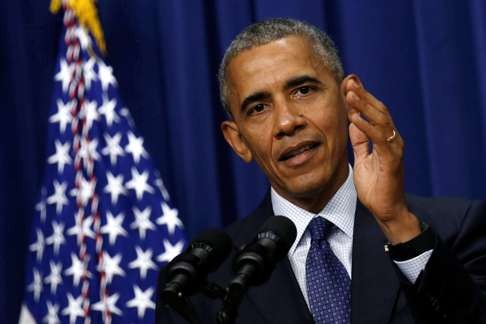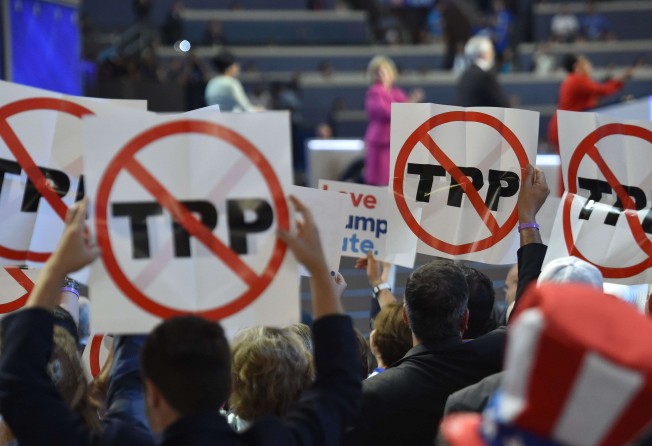
Favoured by Obama, TPP deal draws ire at Democratic and Republican conventions
Americans are divided over whether free-trade deals are good or bad

It’s 30 chapters long and almost nobody has read it, but the Transpacific Partnership (TPP) trade deal has been the unlikely villain at both political conventions.
In Philadelphia this week, opponents have interrupted Democratic National Convention speakers with chants of “No TPP” and expressed relief that Bernie Sanders and Hillary Clinton opposed it. At the Republican convention, Donald Trump said trade deals like the TPP “strip our country of its jobs and wealth”.
Even Virginia Senator Tim Kaine, Clinton’s running mate, came out against TPP the day after joining the ticket, despite having praised parts of it days earlier.
President Barack Obama, beloved within the Democratic Party, is the deal’s chief advocate. The president has worked tirelessly negotiating and then advocating for the agreement. While Obama is expected to get a rock-star reception for his convention speech today, he is now at odds with Clinton, Kaine, Sanders and the top congressional Democrats when it comes to trade.

The TPP is an ambitious trade pact involving 12 countries on both sides of the Pacific Ocean, including the US, Mexico, Japan, Vietnam and Australia. The deal forms a cornerstone of Obama’s attempt to increase US influence in Asia as a counterweight to China. The deal would eliminate trade barriers and tariffs, streamline standards and encourage investment between the countries, which make up nearly 40 per cent of the world’s economic output.
Obama’s strongest TPP support comes from congressional Republicans, who joined with fewer Democrats last year to pass legislation expanding Obama’s negotiating authority. Now completed, the deal awaits ratification, and the White House has said it’s confident it can maintain the support it secured last year.
Supporters argue the TPP strengthens labour standards with minimum wage protections and child labour prohibitions. But critics say it undercuts American workers by introducing lower-wage competition and gives huge corporations too much leeway.
Sticking points include policy issues like “data localisation”, intellectual property and market access – a far cry from hot-button topics like gun control, abortion and taxes that typically drive presidential campaigns.
Opponents on both sides have turned the TPP into a proxy for anxiety about American workers being left behind – albeit in different ways. Where Trump talks about putting “America first” and outmanoeuvring other countries, Sanders and Clinton focus on workers’ rights and fighting corporate influence.
“The agreement is incredibly difficult to understand, but the issues it brings up are the exact bread-and-butter issues that matter to voters,” said Julian Zelizer, a Princeton University presidential historian. “What people do know is they’re struggling to find the kind of security that their parents or grandparents had.”
Americans are divided over whether free-trade deals are good or bad, but in an April AP-GfK poll, 43 per cent called the issue very or extremely important. And 46 per cent said trade deals would decrease jobs available to Americans; only 11 per cent said they would increase them.
Obama, meanwhile, has argued major trade deals are always politically difficult, adding that both sides are missing the point: globalisation is here to stay.